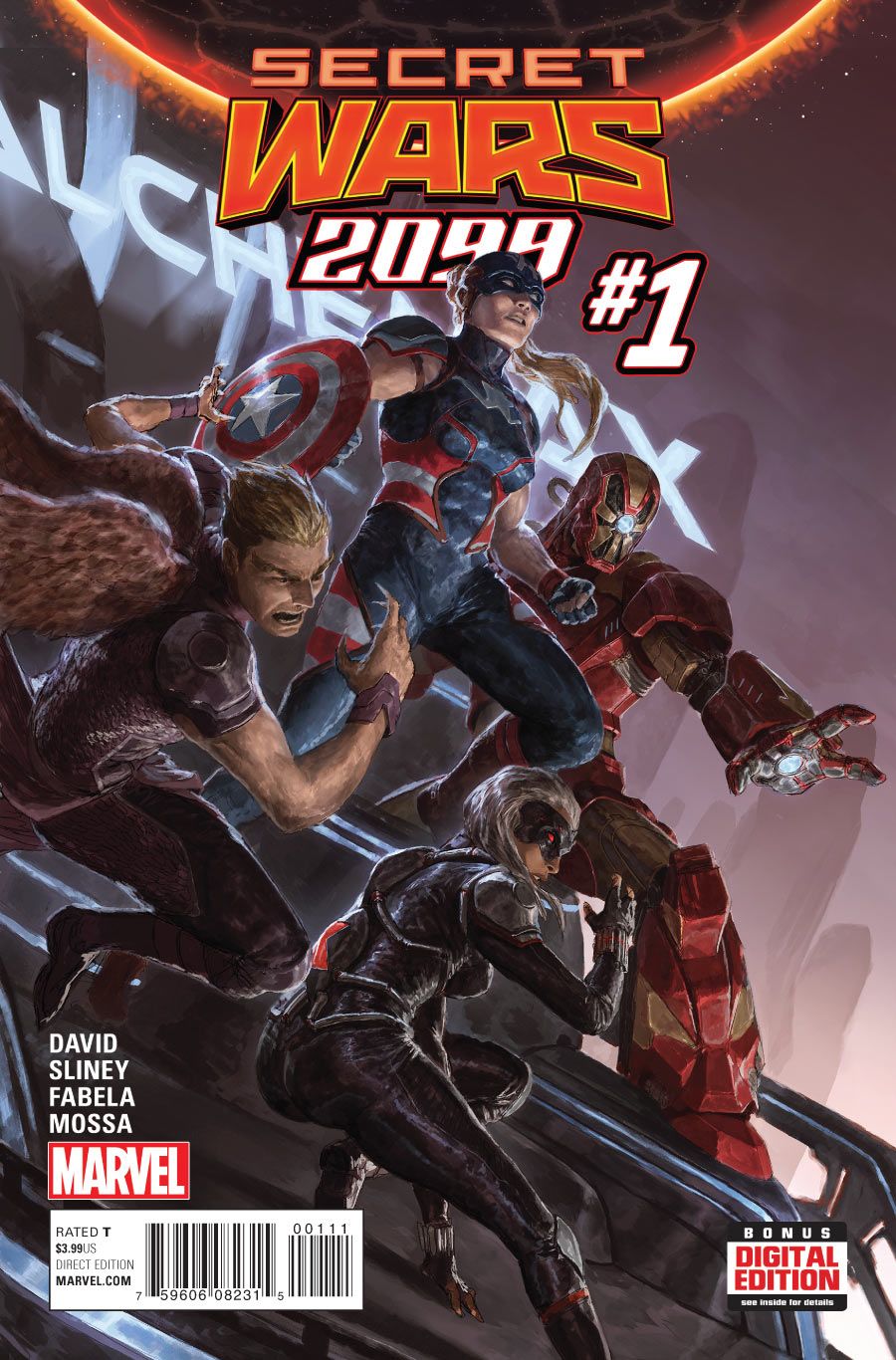"Secret Wars 2099" #1 by Peter David and Will Sliney is a "Secret Wars" event tie-in, but it reads like a regular debut comic, one that is devoted to introducing a new team: Avengers 2099. The original 2099 line briefly mentioned the formation an Avengers team in the one-shot "2099: Manifest Destiny," but this cast is completely new.
All the characters are variations of known types: the ethical leader, the loose cannon, the strong man, the armored hero and the flying hero. David's dialogue fleshes them out, but to varying degrees. Captain America is a cookie-cutter leader at first, but the conversation with her daughter gives her do-gooder persona some depth by revealing either duplicity or ignorance. Either way, being a superhero is a 9-to-5 job for her, not a calling. Hercules seems like an oaf until the next to last scene. The humor in the scene makes him more likable. His grief-stricken dialogue is a shade too melodramatic, but the overall effect of the scene gives him the desired emotional depth. The opening scene shows that Black Widow is as aggressive out of costume as she is under the mask, so she gets a little more characterization than Hawkeye or Iron Man.
Hercules' dialogue is a little too over-the-top, but his behavior also creates both comic relief and dramatic tension. The Avengers' opponents aren't more than faceless, convenient punching bags, but they do the job of enabling the exchange of battle insults. Hercules' post-battle unwanted advances on a civilian give the reader insight into the team dynamics. By the end of "Secret Wars 2099" #1, more than one team member has chafed under Cap's leadership. Her confrontation with Hercules is the most fraught, especially because she treats him like a naughty teenager by forcing him to apologize. The way that Cap is more a parent than a leader to her teammates while on the clock is a hint of further troubles.
Sliney's art is uneven and his strengths are more in storytelling than in draftsmanship. His anatomy is wrong in a lot of other panels, most notably in Black Widow's walking posture on the first page and Iron Man's limbs in the final scene. Captain America's ponytail changes in length for no reason. Fabela and Mossa preserve a lot of the detail in Sliney's cityscapes, but the color of Black Widow's hair is also inconsistent. Captain America's color-changing irises are probably meant to further reinforce the division between her job and her home life, but the eye color shift causes more confusion than it's worth.
A tableau of a downed Hawkeye is composed beautifully and enhanced by particularly pretty color work. Sliney's transitions are smooth in the action scenes, and his facial expressions and body language are good, especially for Hercules. The action scenes are exciting and clear, and the pacing is crisp and efficient throughout.
The plot is commonplace, and David also doesn't expend effort on rehashing or extending the 2099 universe. "Secret Wars 2099" #1 is strongly character-driven, and the readers' responses will depend how much they like the characters. None of the Avengers have as much star power as Miguel O'Hara so far, but Captain America 2099 and Hercules 2099 both make an impression.

